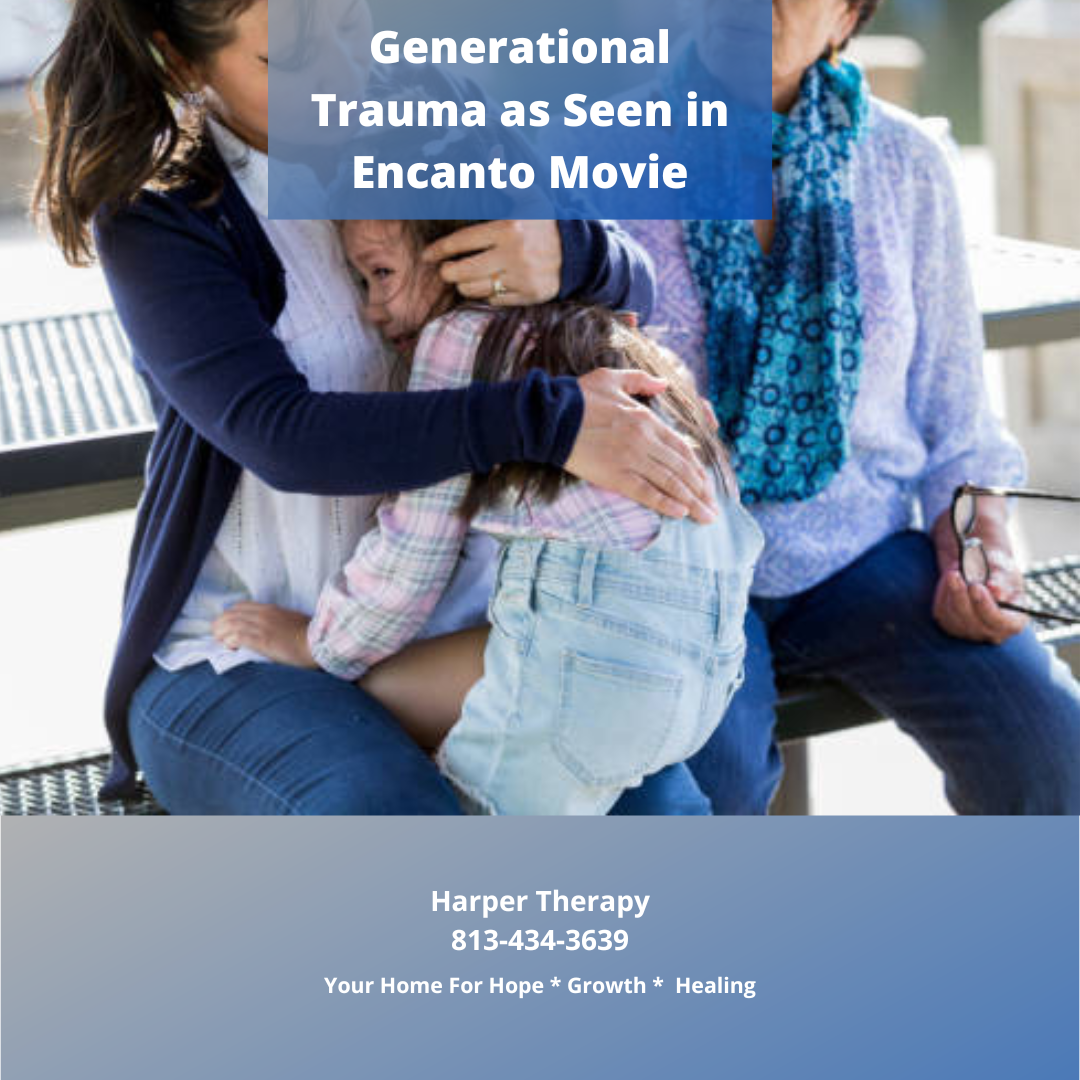Trauma Through Different Eyes: Generational Trauma as Seen in Encanto Movie
How many times have you sat down with a big bowl of popcorn and loose yourself in a really good movie? Think of the times you laughed, cried, and even gotten angry while watching anespecially poignant cinematographic depiction of life. I can bet that you have yelled at the TV, thrown popcorn at the big movie screen and screamed out of fright with all of those around you in the movie theatre, at least once. If you have lived any of these, you have experienced one of the most wonderful processes our psychological minds go through, the ability to share a lived experience and externalize that emotion freely.
What we sometimes do not notice is that movies are a mirror of what is happening inside of us, and they are powerful therapeutic tools disguised as fun. If you are skeptical of this, I understand, and let’s sit here to have a conversation about how movies are more than just good special effects, music, costumes and directing. We can see all emotions depicted in movies. Inthis particular series of facebook lives and blogs, we are going to focus on trauma.
Trauma, as discussed in previous blogs, has many iterations and impacts our lives in different ways. The popular knowledge about trauma includes physical, sexual, verbal and emotional abuse. There are also other types of trauma, such as witnessing violence, surviving accidents, being deployed in war zones, atmospheric events, and generational trauma to name a few.
A movie I would like us to share, to see how trauma is represented, is the recently famous Encanto movie by Disney. No, we won’t talk about Bruno…LOL! We will speak, however, about generational trauma.
Now let us talk, heart to heart. Think of the times when we thought that we were not enough, not smart enough, not athletic enough, not pretty enough, not strong enough, not flexible enough. We wake up every morning with a doom and gloom approach to life because we know that no matter what we do, we will be seen as the disgrace to our parents, our family, our partners, our children, just like Bruno felt in the movie.
Or maybe we wake up with a list of tasks to accomplish and prove that we deserve to be at the table, in the same space as all of the other family members we have set up in the pedestal for heroes, just like Mirabel did.
What we sometimes fail to see is that those feelings of inadequacy, of falling short, of feeling like a stranger in a room full of people we recognize come as part of generational trauma that has been passed on from our parents, grandparents, great-grandparents and so forth.
In the movie, Abuela suffered the injustices of being exiled from their home, their village. Her and her husband led people to a better and safer place, yet the inability to speak reason to the evil doers and the eventual death of the Abuelo while trying to do so, left Abuela Alma alone, a mother of three infants and leading a group of people to safety while unable to grieve for her emotions.
She experienced the trauma of gut wrenching loss, but didn’t have the time to grieve, to mourn. Life taught her that she had to put aside her emotions and lead her children and the people who followed her, into a better place…to Encanto and Casita Madrigal.
Her motto became that they were there to help and serve the community. Although all of this sounds powerful and altruistic, the movie also shows us how this façade of perfection, of having our stuff together, of not acknowledging the uniqueness in each family member, made the entire foundation of the family crumble.
Generational trauma is a quiet underground current of our most scary thoughts and fears. Our internal conversations of what is acceptable and what is frowned upon. Of what defines “us” versus “them”. It is painful because it is kept secret and seen as shameful.
How does the movie end, you may ask? It ends after an act of vulnerability and authenticity brought Mirabel and Abuela to a place where the masks were taken down, and the worth in each individual was restored by the acknowledgment and shifting of these shackling family patterns.
Bottom line and biggest takeaway from Encanto; in order to work generational trauma, we have to do the hard work of identifying these patterns that have hurt us, acknowledge their existence, hold space for the unraveling of convoluted thought patterns and negative self talk, take off the fake masks by being as vulnerable as we know how to and starting to forgive ourselves for having followed a pattern we didn’t even know existed and that now we get to work with and through it in therapy.
We can’t change those who came before us, but we can elicit change within ourselves and hopefully decrease the generational trauma in our kids and grandkids’ lives.
We hope this was a different way of looking at trauma, and if you feel that it resonated and you want to work with your generational trauma, feel free to call Harper Therapy at 813.434.3639 let us, at Harper Therapy, be your Casita for Hope, Growth and Healing!

